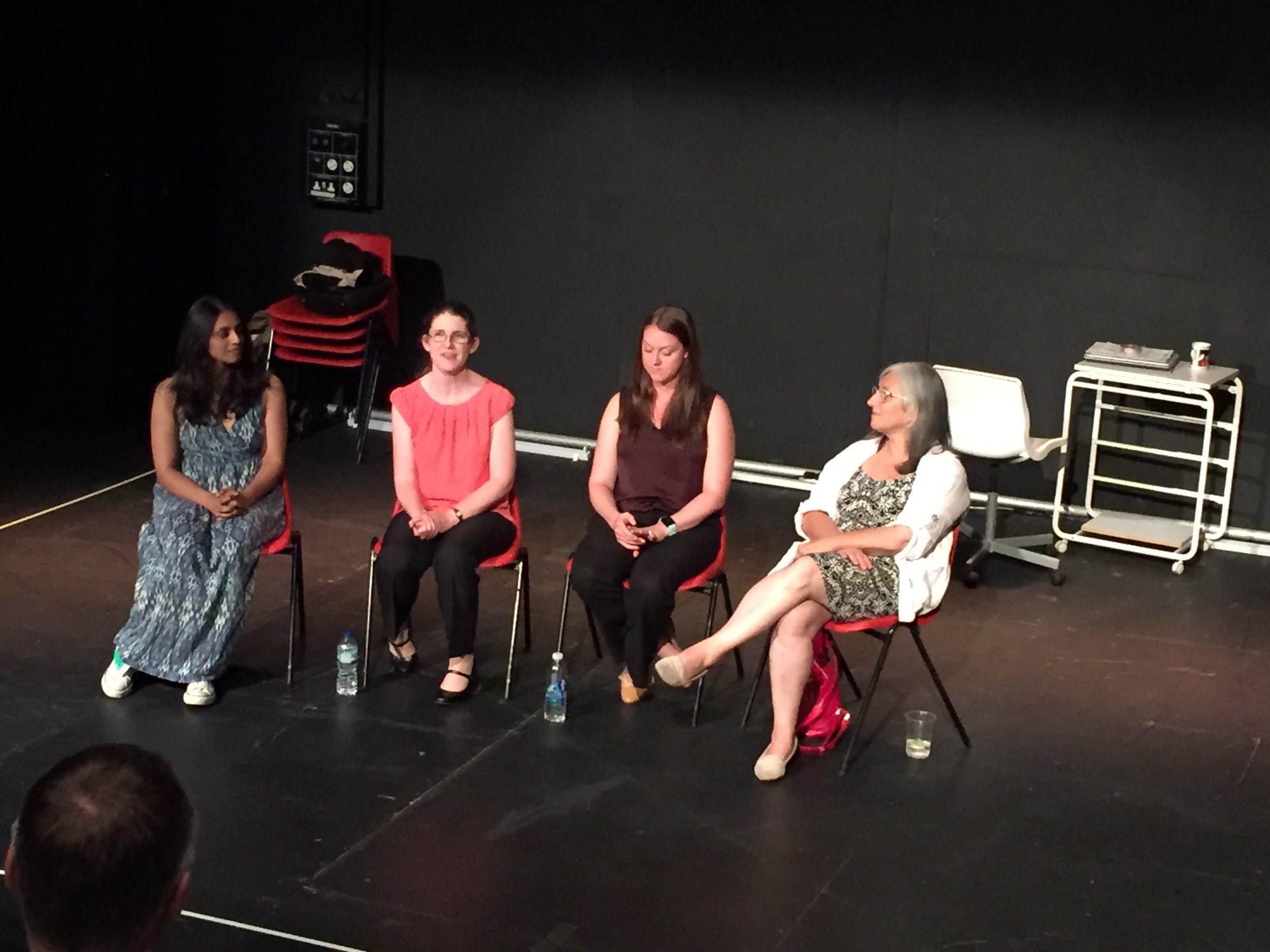Last week I attended a play at the Marlowe Theatre billed as a “post-Brexit satire about what it’s like to be treated as a foreigner in your own land”.

Octopus may have been a dystopian fantasy when writer and producer Asfaneh Grey conceived the play but a year after the EU Referendum, it feels far too close to reality for comfort. The sharpness of the script and the talent of the actresses evoked the dark humour, fear and sadness which permeate the discussions I’ve been having with EU migrants and British citizens, who worry about what our post-Brexit future has in store for us all.
The EU referendum was championed by the pro-Brexit lobby as an opportunity to “take back control,” by which they usually meant control over borders and immigration. The fundamental EU principle of freedom of movement had allowed Britain to be overrun by migrants who took jobs, supressed wages and put pressure on public services. These claims were challenged with statistical evidence but they nevertheless resonated with voters, who increasing felt the pain of the government’s austerity agenda. UKIP also tried to present their objections to EU migration as a means to win the votes of British citizens of non-European heritage. Instead of allowing millions of Poles or Slovaks to move to the UK, why not allow these jobs to be filled by Kenyans, Australians or Indians?
Such a line of reasoning may have resonated with some of the 17 million who voted to leave the EU. However, as Octopus explores, when an apparently neutral bureaucratic system decides who should be entitled to enjoy the benefits of a “British way of life,” deeply unfair outcomes are possible. We see how one character, who supported the policy, finds the tick boxes on the standardised form do not match her sense of identity and lead to sanctions. Another confesses that while she did not vote for the policy, secretly she didn’t mind that others did. In both cases these characters naïvely believe that as they have nothing to hide, they have nothing to fear. Both are proven wrong. A year after the referendum, it is still not clear at all what the consequences of “taking back control” will be. How will any government decide which migrants are the good ones? Which ones are to be valued? Given the deeply embedded structural racism which permeates most of British public life, is there any reason to think that “taking back control” will benefit anyone other than the wealthy, white elite?
The other angle that Octopus explores is what happens when people who have always felt assured of their status suddenly find that challenged. While the play addresses definitions of Britishness, parallels with EU status are clear. EU citizens of my generation have never known anything other than the privileges of free movement and many have not given much thought to the very different experiences of non-EU migrants. In a sense, we have enjoyed a form of privilege similar to white privilege or male privilege, in this case unearned and unacknowledged advantages on the basis of citizenship. It is only since the referendum that many have realised how rare and precious an advantage they possess and are poised to lose. People express amazement that a Dutch woman might be at risk of deportation because a form was mislaid or incorrectly dated, even though this regularly happens to Australians, Somalis and Pakistnis.
It has taken the government 12 months to state how they propose to deal with the status of EU migrations settled in the UK. Theresa May indicated that those living here for five years would be accorded a special status, which would allow them to keep most of the rights they currently enjoy. However, the devil will be in the detail. It is not clear what the cut-off date for the five years would be. It is also not clear how the 5 years of legal residency will be established, given the absence of any system of registering the arrival of migrants, particularly those outside the PAYE system. The rights of family members living in other countries need to be clarified, as do the rights of “settled EU” migrants (or whatever they may be called) who wish to continue to move around the EU and return to the UK at different points. There is also no explanation as to how the fears of those voting for Brexit with the intention to remove the hordes of migrants will be assuaged, if it transpires that most will actually stay.
In his powerful account of life in the UK as a Black immigrant Musa Okwonga refers to the trope of the ‘grateful migrant’.[i] He explains how hard he tried to fit in and be accepted and how he eventually decided that the UK was an “ungrateful country” and he would be better off moving elsewhere. It remains to be seen what EU migrants decide to do when eventually presented with a clear set of options from the government. The reality is that most are confident and mobile enough to take their skills elsewhere if we feel we are not welcome. If we could make a successful life in one country we could do the same in another. It may break our hearts to uproot our families and leave dear friends behind, but faced with an uncertain future of box ticking and form filling as successive governments try to classify our worth and account for our “entitlement to a British way of life,” it may be the best way to take back control over our own lives.
This post was originally published here.
[i] Musa Okwunga (2016) ‘The Ungrateful Country’ in The Good Immigrant edited by Nikesh Shukla, London: Unbound, pp. 224-234.
 Politics
Politics Anna Vanaga
Anna Vanaga 918
918

